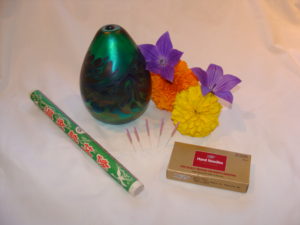I love people who ask a lot of questions! That person on the phone who has endless questions about acupuncture isn’t annoying me at all; they’re doing their homework before trying out a new practitioner and for most, a new system of  healing.
healing.
If you’re trying acupuncture for the first time, you want to know if acupuncture can help your particular problem, and that’s a good place to start. There are, however, some other questions that you should also have answered, even if you haven’t thought to ask them. Here is my short list:
1) Your acupuncturist doesn’t know exactly how many treatments it will take for you to feel better. Everyone heals at a different rate. In general young and healthy people heal much faster than someone who is older or not in great health. In addition, if you’ve had your symptoms for decades, it will take longer to treat you than if your symptoms started last week. My general rule of thumb is to give it three or four treatments, see how you’re responding, and then I can give you a better answer. Sometimes that’s all you need; sometimes you’re improving but need more treatments; and in some cases, acupuncture isn’t the answer.
2) Chinese medicine is based on a partnership between you and your practitioner. Your acupuncturist should tell you that if poor diet, stress, or lack of sleep are causing your symptoms, acupuncture can only do so much to help you permanently. Part of Chinese medicine includes recommendations to keep your health issues from happening again. We can put you back together, but you have to do your part to stay healthy, too.
3) Many acupuncturists have areas of special interest that they treat frequently and well. While it’s important to be aware of a practitioner’s specialty, it is also important to know what they can’t treat or don’t treat well. A good question to ask is how many times they have treated your particular condition.
4) Not all acupuncturists are created equal. The educational requirements for people performing acupuncture vary widely, from over 3,000 hours of training for licensed acupuncturists to only 105 hours for some chiropractors. This is one of the most important questions you should be asking of your acupuncturist before they begin to treat you.
5) If you’re seeking out acupuncture for weight loss, your acupuncturist should tell you that there is no magic acupuncture point or treatment that will magically make the pounds slip away. What they can do is support your weight loss efforts through relief from stress or depression, curb food cravings, offer advice and planning based on Chinese food therapy, and help improve your digestion. You will still have to do the hard work, but it can be easier and you can be successful with the help of Chinese medicine.
6) Your acupuncturist should also be sharing what other healing tools they offer. Many practitioners are nationally credentialed herbalists. Many offer some combination of food therapy and lifestyle counseling, body work, heat therapy, and other techniques to speed up your healing process. Just ask.
7) While we acupuncturists don’t talk much about the needles, there are things you should know. First acupuncture needles are sterile and used only once. Second, they are not hollow, so they are a much finer gauge than any needles you’ve ever seen at your doctor’s office. Third, they are inserted in such a way, that frequently they aren’t even felt. In reality, most needle-squeamish patients are almost disappointed after I have inserted the first needle; it’s pretty uneventful and painless.
8) Finally, your practitioner should be open to answering any and all of your questions. It’s important for you to feel comfortable not only with your acupuncturist, but also with acupuncture itself. If your practitioner is too busy or unwilling to answer your questions, you should look for one who will.



